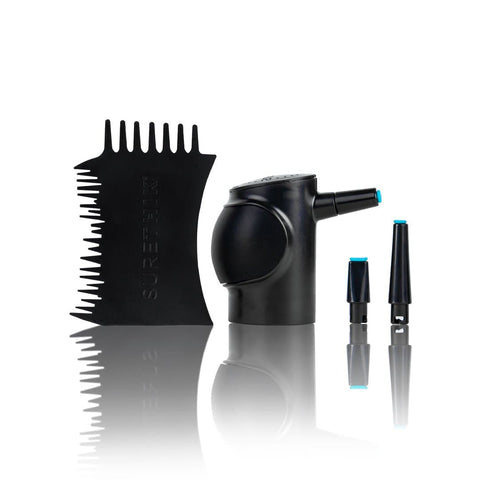
World Cancer Day: Hair Loss And Regrowth
Hair grows in a continuous cycle, with old hairs falling out and being replaced by new ones. Part cancer therapies cause patients to lose some or all of their hair, which usually falls out in clumps during washing or combing.
It's natural for both men and women to be unhappy when they lose their hair. It's comforting to know that hair comes back and that you may take actions to make hair loss less of an issue for you.

WHO IS THE DRIVING FORCE BEHIND WORLD CANCER DAY?
World Cancer Day is an initiative of the Union for International Cancer Control (UICC), the largest and oldest international cancer organization dedicated to convening, capacity building, and advocacy initiatives that unite the cancer community in order to reduce the global cancer burden, promote greater equity, and integrate cancer control into the global health and development agenda.
THE BEGINNINGS OF WORLD CANCER:
On February 4, 2000, during the World Summit Against Cancer for the New Millennium in Paris, World Cancer Day was established. The Paris Charter, which includes the creation of World Cancer Day, aims to support research, prevent cancer, enhance patient care, increase awareness, and mobilize the worldwide community to achieve progress against cancer.
To read more check out there website!
COVID -19 AND CANCER: IMPACTS
People with active cancer are more vulnerable to infectious organisms due to a compromised immune system caused by the malignancy and/or its treatment (e.g., surgery and chemotherapy). This has raised worries that cancer patients may be more vulnerable to COVID-19 problems.
A study of 928 patients from the United States, Canada, and Spain who participated in the COVID-19 and Cancer Consortium discovered no elevated risk related with cancer type or timing of cancer treatment.
Another study of 423 patients with symptomatic COVID-19 in a New York cancer facility discovered that neither recent chemotherapy or surgery, nor metastatic disease, were associated with an increased risk of problems.
The National Cancer Institute (NCI) is now undertaking a study of 2,000 cancer patients who have also been infected with COVID-19 (NCI COVID-19 in Cancer Patients Study), which will be tracked for up to two years.

BE PREPARED FOR HAIR LOSS WHEN UNDERGOING CHEMOTHERAPY:
“Yesterday is history, tomorrow is a mystery, but today is a gift – that’s why it’s called ‘the present.'” - Bill Keane
Cancer survivors who have been through this want to provide some advice on how to mentally and physically prepare for hair loss during chemotherapy. Here are a few of their suggestions:
- Certain chemotherapy drugs used to treat breast cancer might cause your hair to thin or fall out altogether. Some chemotherapy drugs can also cause hair loss in other areas of your body, including your brows and eyelashes, pubic hair, and hair on your legs, arms, or underarms.
- Allow yourself some time. It may be tough to accept that you are losing your hair. It may take some time to acclimate to your new appearance, and even more time to feel good about yourself again. It's normal to be unhappy. At the same time, keep in mind that hair loss is typically transitory and that hair will regrow once you finish therapy.
- Be careful with your hair. Use a soft bristle brushes or a wide-tooth comb, as well as a moderate, gentle shampoo (but limit washing). Take careful care of your scalp, which can become dry and irritable. Using a soft towel, gently pat hair dry. Limit the usage of hair clips, barrettes, elastic bands, and pins that tug on your hair. As new hair grows in, it may be brittle and fragile, necessitating extra care.
STYLE TIPS FOR HAIR LOSS:
It can be tough to adjust to hair loss and other changes to your body and appearance while you're dealing with cancer, therapies, and the hardships that come with a diagnosis. However, there are methods for preparing for and dealing with hair loss when it comes. Here are four techniques to cope with cancer-related hair loss and style your hair:
- Allow yourself some time. It may be tough to accept that you are losing your hair. It may take some time to acclimate to your new appearance, and even more time to feel good about yourself again. It's normal to be unhappy. At the same time, keep in mind that hair loss is typically transitory and that hair will regrow once you finish therapy.
- Consider wearing a head covering. If you decide to purchase a wig, hairpiece, or other head coverings (such as turbans, caps, scarves, hats, or head wraps), do it before your hair starts falling out. If you acquire a wig, look for one that matches your natural hair color and texture and have it styled ahead of time. Some insurance policies or assistance programs may aid in covering the cost.
- Before the treatment, trim your hair to a short length. Consider getting a short hairstyle before beginning cancer treatment, especially if you have long hair. When your hair starts to fall out, it may not be as shocking or upsetting if it is already short. Cutting your hair may also make you feel more in control. To avoid scalp discomfort or sensitivity, some people shave their heads once their hair begins to fall out.
- Hair building Fibers. If your hair thins but does not fall out entirely throughout treatment, consider Hair Building Fibers to fill in any sparse places. Hair Building Fibers can be sprinkled directly on the hair from the bottle or used with the Spray Applicator. Finish with Holding Spray for long-lasting gloss and durability.
CANCER AWARENESS: RESOURCES
World Cancer Day is an initiative of the Union for International Cancer Control (UICC), the largest and oldest international cancer organization dedicated to convening, capacity building, and advocacy initiatives that unite the cancer community in order to reduce the global cancer burden, promote greater equity, and integrate cancer control into the global health and development agenda.
WORLD CANCER AWRENESS: TAKE ACTION
If you wish to be a part of path to accomplishing your commitment to promoting cancer awareness and bridging the care gap this World Cancer Day "21 Days to Impact Challenges" once again this year.
There will be three focal points:
- Close The Care Gap: Daily lessons to help you understand more about the hurdles to cancer treatment that many people face, and how these disparities influence each of us, our communities, and our planet.
- Focus On Your Health: Daily challenges will focus on getting you to move more, eat better, and live more mindfully.
- Eliminate Cervical Cancer: Daily tips to help you spread the word about the worldwide resolve to eliminate cervical cancer as a public health crisis.

For more information on way you can help or want to get involved you can check out: World Cancer Day 2022





